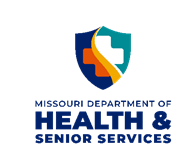September 9, 2025

GOP Lawmakers Uphold NIH Funding: 5 Federal Health Updates
The Republican-led House Appropriations Committee has released a spending bill for 2026 that quietly ignores an $18 billion cut to the National Institutes of Health that President Donald Trump proposed earlier this year.
The proposed budget bill, released September 2, calls for $48 billion in NIH funding for fiscal 2026, which would keep funding levels for the agency in line with what it has received in the last few years. The bill stands in opposition to the 40% cut President Trump outlined for the NIH in a budget proposal released in June.
In a fact sheet on the bill, House Appropriations Committee members wrote that providing $48 billion in NIH funding will “maintain America’s edge in basic biomedical research cures to cancer, Alzheimer’s disease, and rare diseases and supports the Trump administration’s priority of increasing research for other chronic diseases impacting Americans.”
The bill, however, does call for a $7 billion budget cut to HHS, which is about 6% less than 2025 levels. It proposes a 19% cut to the CDC “and streamlining 35 duplicative and controversial programs,” positioning the agency to focus solely on infectious disease. It would also eliminate the Agency for Healthcare Research and Quality. The proposal puts several billion in funding toward primary care, the healthcare workforce and rural health.
Click Here to Read Four More Updates



